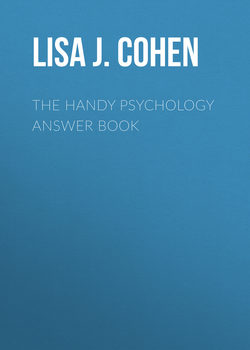Читать книгу The Handy Psychology Answer Book - Lisa J. Cohen - Страница 263
На сайте Литреса книга снята с продажи.
Who devised the first intelligence test?
ОглавлениеFrances Galton (1822–1911), the father of Eugenics, was one of the first scientists to study individual differences in intelligence. He presumed such differences were inherited, what we would now call genetic, and he aimed to separate the most intelligent individuals from the least in the interest of selective breeding. In keeping with Wilhelm Wundt’s studies of sensation and perception, Galton’s initial intelligence tests comprised various measures of hand grip, reaction time to sensory stimuli, and other sensory-motor skills. James Cattell (1860–1944) carried this work forward and developed an intelligence test based on Galton’s work. In his position as professor of psychology at Columbia University, he administered his test to hundreds of college freshmen. (Perhaps this was the beginning of the long tradition of using college freshmen in psychological research.)
By 1901, Cattell had sufficient data to correlate students’ grades with their intelligence test results. To his great disappointment, there was no relationship at all between the two variables. We might attribute these negative findings to two factors: a lack of construct validity, such that psychophysical measures have no relationship at all to academic performance, and restriction of range. College freshmen at an elite university will not vary that much in intelligence, so some correlations with intelligence may be masked by this fact.
